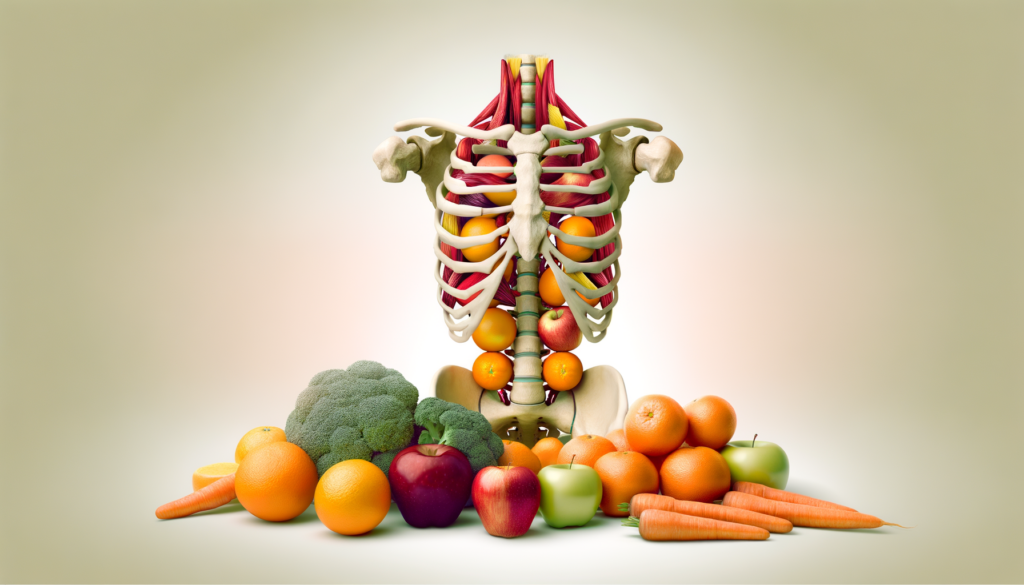## Understanding the Complex Role of Artificial Sweeteners in Calorie Perception and Intake
When it comes to managing weight and maintaining a healthy diet, many individuals turn to artificial sweeteners as a seemingly harmless alternative to sugar. However, the impact of these sweeteners on calorie perception and intake is more complex than initially thought. Here, we delve into the latest research and findings to provide a comprehensive understanding of how artificial sweeteners affect our bodies.
## The Promise and Controversy of Artificial Sweeteners
Artificial sweeteners are designed to provide the sweetness of sugar without the calories, making them an attractive option for those seeking to reduce their energy intake. Studies have shown that artificial sweeteners can indeed lower daily energy intake and sugar consumption in the short term.
However, the long-term effects and overall health benefits of artificial sweeteners remain a topic of debate. While many national authorities have recognized artificial sweeteners as safe and well-tolerated, there are significant concerns about their impact on human health. For instance, some longitudinal cohort studies suggest that artificial sweeteners may be associated with an increased risk of hypertension, stroke, and cardiovascular events.
## How Artificial Sweeteners Affect Calorie Perception
One of the key issues with artificial sweeteners is how they alter the brain’s perception of sweetness and energy content. Research from the University of Sydney has identified a neuronal network in the brain that integrates the sweetness and energy content of food. When this balance is disrupted by artificial sweeteners, the brain recalibrates and increases total calorie consumption. This is because the brain perceives the sweetness without the corresponding energy, leading to an increased motivation to eat more food.
In a study published in *Cell Metabolism*, researchers found that animals exposed to a diet containing the artificial sweetener sucralose began eating more, even when they had sufficient calories. This increased food intake was attributed to the brain’s response to the discrepancy between sweetness and energy levels, prompting an increase in caloric consumption.
## The Impact on Appetite and Weight Management
The effect of artificial sweeteners on appetite is another critical aspect to consider. Studies have shown that consuming artificial sweeteners can make individuals feel hungrier and lead to increased food intake. This is partly because the intense sweetness of artificial sweeteners can be as addictive as cocaine, stimulating dopamine in the brain’s reward centers and leading to cravings for more sweet foods.
Moreover, the use of artificial sweeteners can disrupt the body’s natural ability to regulate calorie intake. When the body is exposed to sweet tastes without the corresponding calories, it can lead to a weaker caloric compensation, meaning the body does not adjust its energy intake accordingly. This can result in weight gain, as seen in studies where rats fed artificial sweeteners gained more weight than those fed glucose.
## Metabolic and Health Implications
The metabolic effects of artificial sweeteners are varied and complex. While some studies suggest that artificial sweeteners may aid in weight loss by reducing energy intake, others indicate that they can impair metabolic function. For example, a Yale study found that consuming low-calorie sweeteners with a carbohydrate can impair sugar metabolism and brain response to sugar, potentially leading to glucose intolerance and diabetes.
Additionally, artificial sweeteners have been linked to adverse cardiovascular events, including coronary artery disease, stroke, and all-cause mortality. The different metabolic rates of various artificial sweeteners contribute to these conflicting findings, highlighting the need for more long-term studies in humans to clarify their health effects.
## Real-World Examples and Case Studies
To illustrate the practical implications of these findings, let’s consider a few real-world scenarios:
– **Diet Soda Consumption**: Many people turn to diet sodas as a low-calorie alternative to regular soda. However, if these diet sodas contain artificial sweeteners like sucralose or aspartame, they may actually increase calorie intake in the long run due to the brain’s recalibration of sweetness and energy content.
– **Low-Calorie Foods**: Products labeled as “low-calorie” or “sugar-free” often contain artificial sweeteners. While these products may seem like a healthy choice, they can lead to increased cravings for sweet foods and potentially disrupt metabolic function.
## Educational Programs and Safe Consumption
Given the complexities and potential risks associated with artificial sweeteners, educational programs and nutritional advice are crucial. These programs should focus on the safe consumption and daily permissible doses of artificial sweeteners, particularly targeting females and individuals with diabetes or obesity.
For instance, using tools like the Calorie Calculator Cloud can help individuals better understand their calorie intake and make informed decisions about their diet, including the use of artificial sweeteners.
## Conclusion and Practical Advice
In conclusion, while artificial sweeteners may seem like a convenient way to reduce calorie intake, their impact on calorie perception and weight management is multifaceted and not entirely beneficial. Here are some practical tips to consider:
– **Balance Your Diet**: Instead of relying solely on artificial sweeteners, focus on a balanced diet rich in whole foods, fruits, and vegetables.
– **Monitor Your Intake**: Use tools like the Calorie Calculator Cloud to track your calorie intake and ensure you are not overcompensating with other foods.
– **Choose Natural Alternatives**: Opt for natural sweeteners like honey or stevia when possible, and be mindful of the portion sizes.
– **Stay Informed**: Keep up with the latest research and guidelines on artificial sweeteners to make informed decisions about your health.
By understanding the complex role of artificial sweeteners in calorie perception and intake, you can make better choices for your health and well-being. For more detailed information on managing your calorie intake and weight, consider exploring the Calorie Calculator Plans available to help you achieve your health goals.








